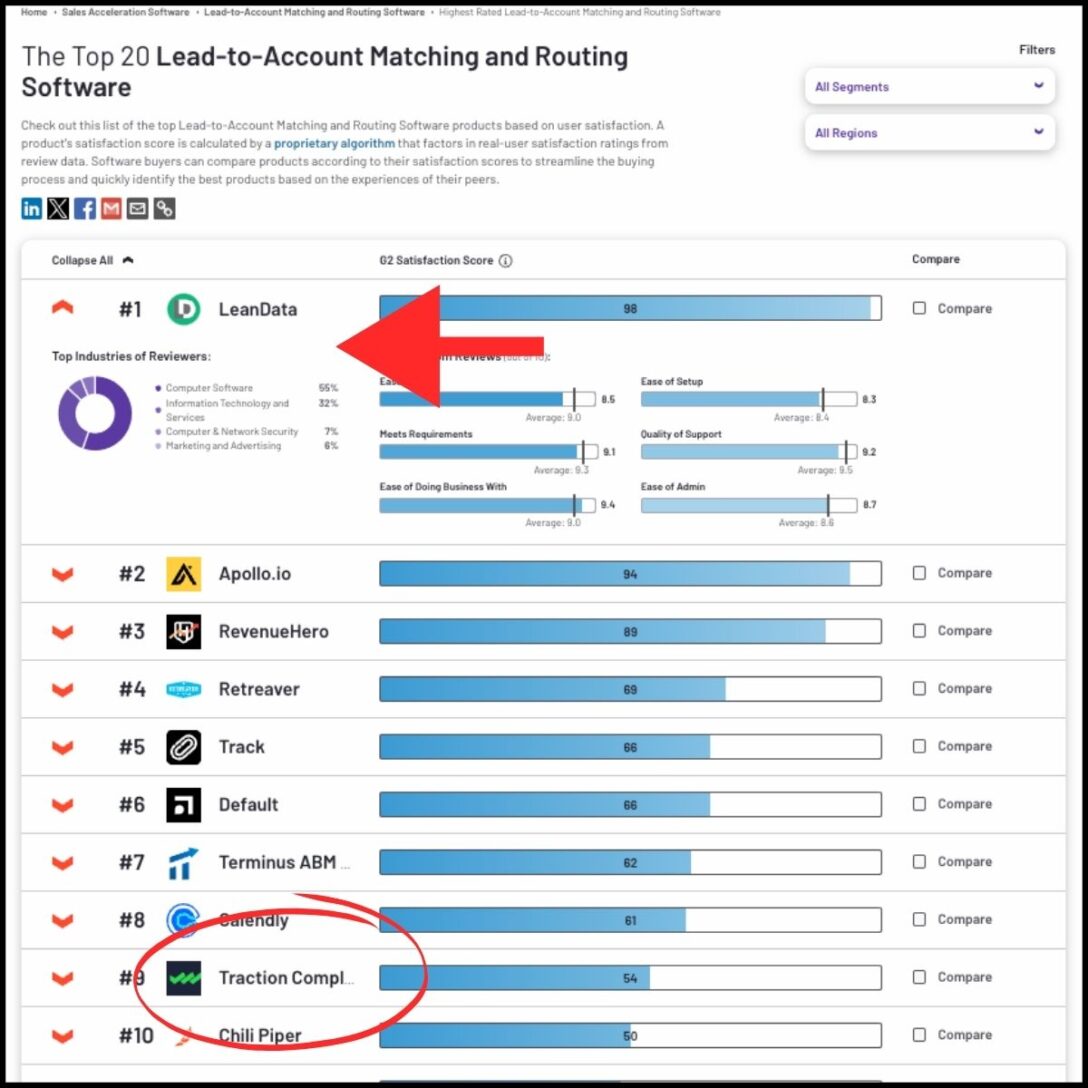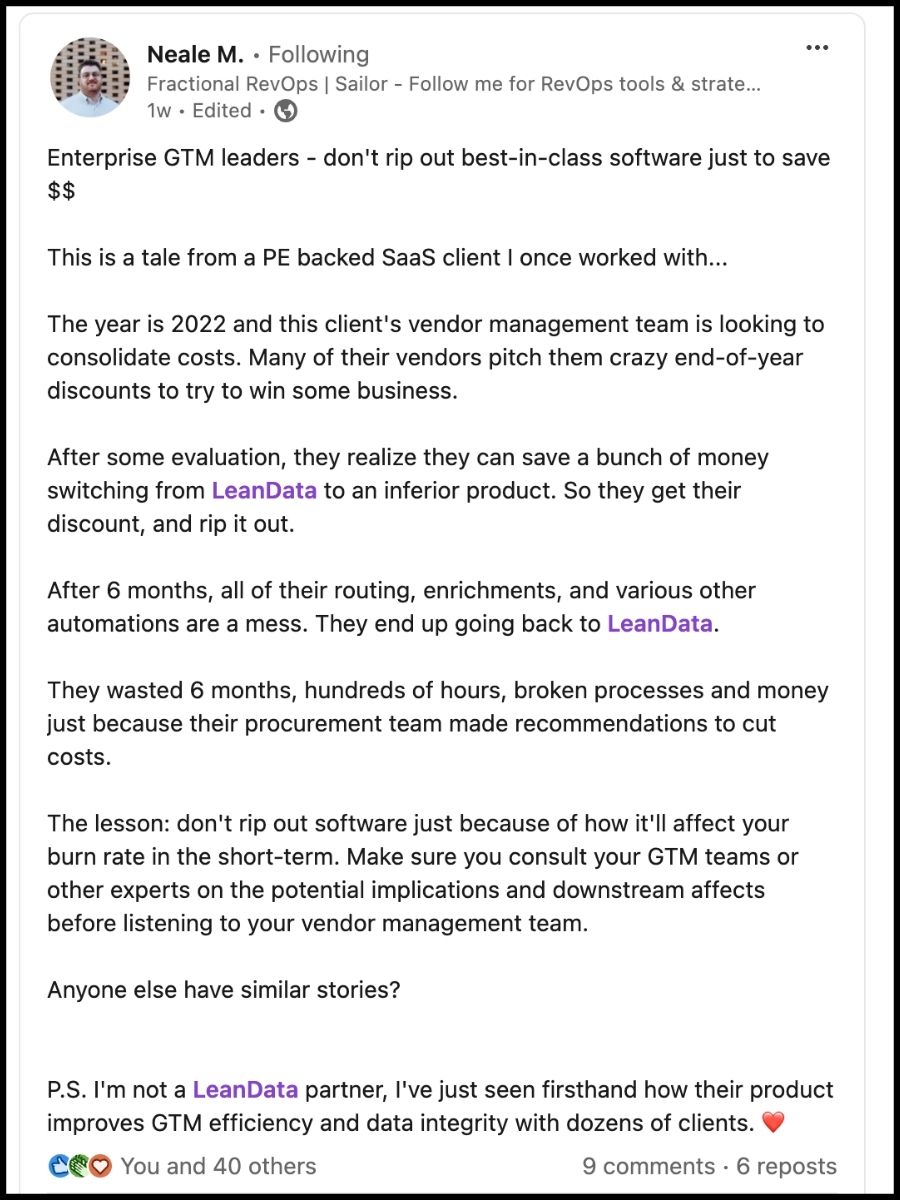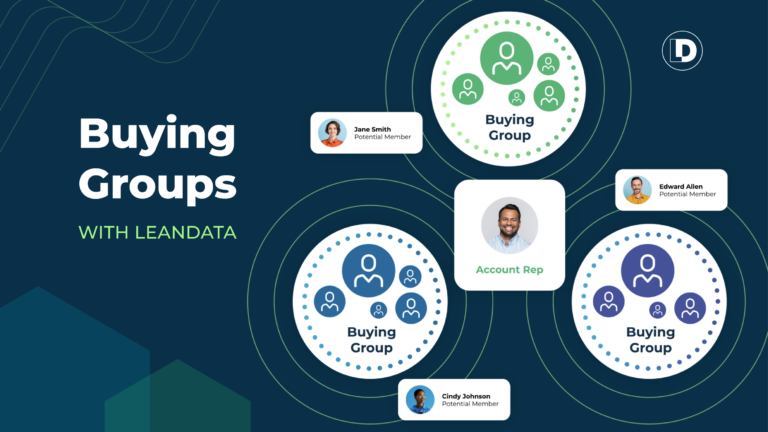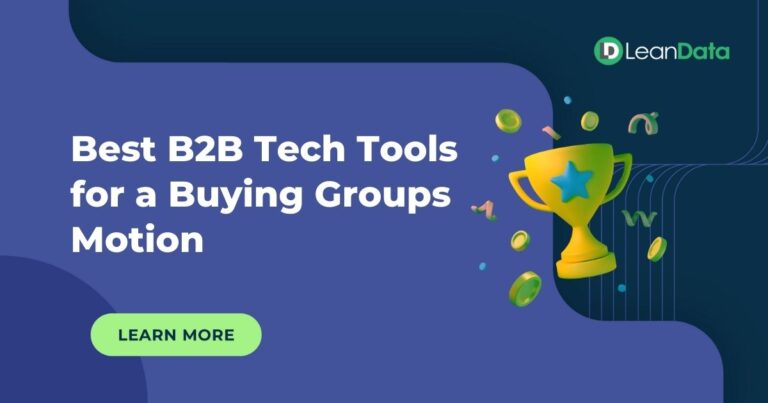When it comes to choosing a lead routing solution, the stakes are high.
Misrouted leads, inefficiencies in routing processes, and poor data hygiene can cost your organization revenue and damage your customer experience.
Two prominent players in this space are LeanData and Traction Complete.
Both offer tools to automate lead routing, improve account hierarchies, and enhance the buyer journey. However, their differences in functionality, reliability, and long-term ROI make LeanData the clear choice for businesses prioritizing speed, accuracy, and scalability.
In this blog post, we’ll break down the key differences to help you decide:
LeanData vs. Traction Complete — which should you buy?

Overview of Traction Complete
Traction Complete, originally part of Traction on Demand (acquired by Salesforce in 2022), is a SaaS company headquartered in Burnaby, British Columbia. Their suite of tools includes:
- “Complete Leads”: Lead routing automation
- “Complete Hierarchies”: Account hierarchy management
- “Complete Clean”: Deduplication for CRM data
- “Complete Influence”: Buying group mapping
While Traction Complete offers an entry-level solution, it comes with significant limitations that could hinder your go-to-market (GTM) strategy in the long run.
Key Comparisons: LeanData vs. Traction Complete
1. Routing Capabilities
- LeanData: Supports comprehensive routing use cases critical for modern GTM strategies, such as a buying groups motion, time-based routing, SLA tracking, and Round Robin assignments. Adjusting workflows is easy and straightforward, ensuring flexibility as your team grows or your strategy evolves.
- Traction Complete: Limited routing options. For example, their time-based features only reassign records rather than processing further actions. SLA tracking is cumbersome, requiring multiple timers for standard objects and little flexibility.
Takeaway: If you need agility and advanced routing functionality, LeanData delivers the capabilities Traction Complete lacks.
2. Data Matching Accuracy
- LeanData: Uses six fields for fuzzy matching, ensuring accurate lead-to-account matching and minimal manual intervention. LeanData also comes with out-of-the-box functionality to handle junk domains and ensure clean CRM data.
- Traction Complete: Relies heavily on Salesforce Duplicate Rules, which increases complexity and the likelihood of errors. Users must manually configure matching rules, which can result in misrouted leads and dirty data.
Takeaway: For superior data quality and reliable lead matching, LeanData is the clear winner.
3. Reliability and Support
- LeanData: Known for its robust performance, comprehensive help documentation, and self-service tools that empower users to troubleshoot without relying on support.
- Traction Complete: Frequent bugs and limited documentation often leave users dependent on paid consulting services. This dependency can slow down processes and increase costs over time.
Takeaway: LeanData ensures reliable performance and offers better support, reducing downtime and operational frustration.

4. Productivity and Integrations
- LeanData: Integrates seamlessly with sales engagement platforms (Salesloft, Groove, Salesforce Sales Engagement) and tools like 6sense, Clearbit, and Sendoso, enabling faster speed-to-lead and an improved buyer experience.
- Traction Complete: Lacks integration with many critical tools, limiting operational efficiency and the ability to enhance the customer journey.
Takeaway: LeanData’s integrations help teams work faster and smarter, while Traction Complete’s limited options can slow teams down.

5. Cost and ROI
- LeanData: Offers transparent pricing and superior ROI. LeanData’s robust features and ease of use reduce operational overhead and eliminate the need for costly consulting services.
- Traction Complete: Frequently discounts aggressively but requires significant add-ons like consulting to address gaps in functionality. Hidden costs often result in a total expense that is 33% higher than LeanData.
Takeaway: LeanData provides better long-term value, saving costs through reduced operational burden and better business outcomes.
Questions to Consider When Choosing Between LeanData & Traction Complete
- Is speed-to-lead a priority?
LeanData enables faster and more accurate routing, while Traction Complete’s limitations can slow down your GTM efforts. - Do you value comprehensive SLA tracking?
LeanData offers robust SLA tracking that is easy to configure and manage, while Traction Complete falls short in this area. - How important is data hygiene?
With LeanData, you can trust your data quality thanks to advanced matching and deduplication tools. Traction Complete’s manual processes introduce a higher risk of errors. - Do you want self-service capabilities?
LeanData empowers teams to troubleshoot and optimize independently, unlike Traction Complete, which often requires costly consulting services.

Why Choose LeanData?
When you compare LeanData to Traction Complete, the choice becomes clear.
LeanData provides unmatched routing flexibility, superior data matching, and better integrations to support your sales and marketing teams.
By choosing LeanData, you’re not just investing in a tool—you’re investing in a streamlined, scalable GTM strategy that accelerates revenue and enhances the buyer experience.
Ready to take your lead routing and revenue operations to the next level? Schedule a demo with LeanData today.









